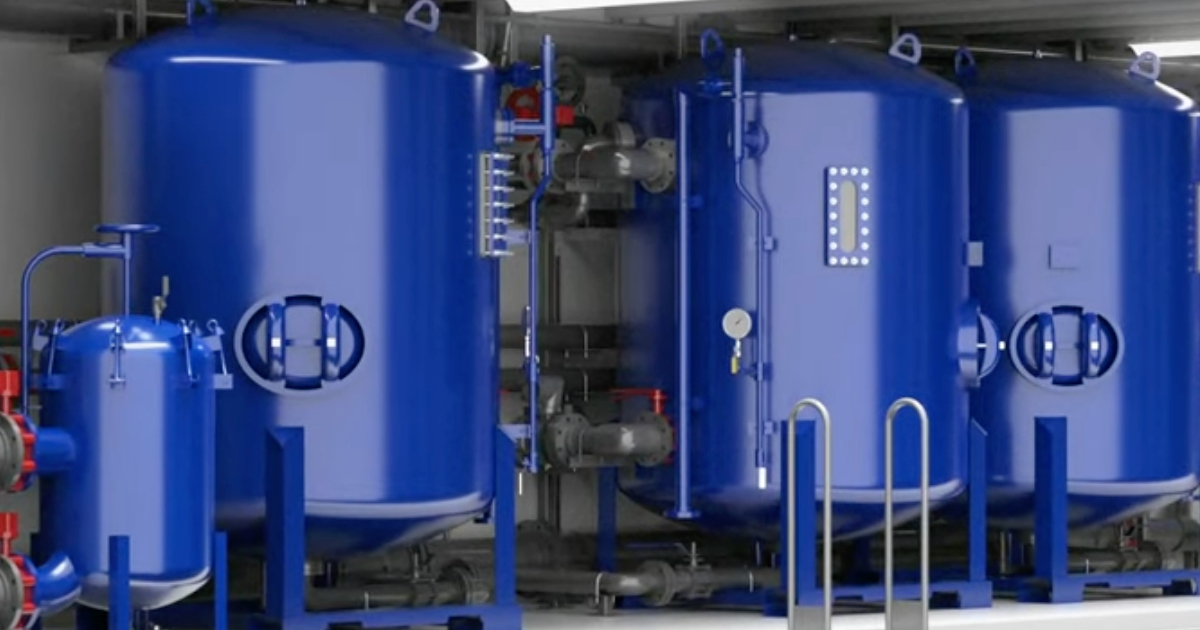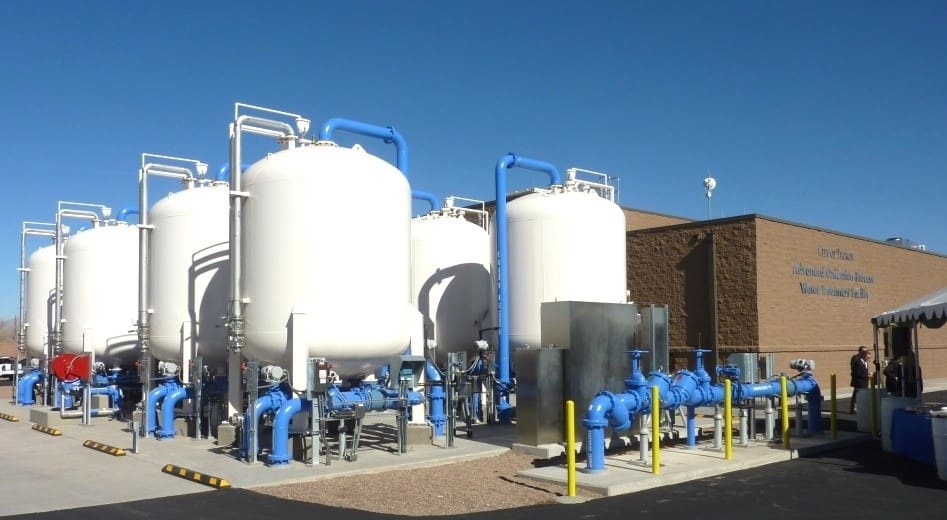M270 PFAS Treatment for Rapid Reduction of Contaminants
M270 PFAS Treatment for Rapid Reduction of Contaminants
Blog Article
Exactly How PFAS Therapy Makes Sure Clean and Lasting Water
The presence of PFAS, typically referred to as "forever chemicals," presents significant challenges to water top quality and public health. Advanced therapy technologies, including turned on carbon adsorption and membrane purification, have emerged as reliable solutions to minimize these contaminants. By utilizing these approaches, communities can not just achieve cleaner water however additionally foster sustainable methods that shield communities. Nonetheless, the implications of these treatments prolong past prompt health benefits; they increase critical questions regarding lasting water management techniques that need to be dealt with to guarantee a resilient future. What does this mean for our method to water sustainability?

Recognizing PFAS Contamination
PFAS, or per- and polyfluoroalkyl substances, have arised as a substantial environmental worry as a result of their widespread prevalence and determination in the atmosphere. These artificial chemicals have actually been made use of in numerous commercial applications and customer items, consisting of non-stick cooking equipment, water-proof clothing, and food packaging, due to their unique buildings such as water and oil resistance.
The contamination of dirt and water resources by PFAS takes place primarily through commercial discharges, firefighting foam use, and seeping from land fills. pfas management. As soon as launched, these materials are immune to destruction, bring about their buildup in the atmosphere. This determination increases essential concerns, as PFAS can take a trip cross countries with groundwater and surface area water supply, impacting drinking water materials and communities

Wellness Dangers of PFAS
The perseverance of PFAS in the setting raises significant health and wellness worries for individuals subjected to these substances. Referred to as "for life chemicals," PFAS do not break down conveniently and can accumulate in human bodies over time. Study has linked PFAS exposure to various adverse wellness results, including immune system dysfunction, liver damages, and boosted risk of certain cancers cells - pfas management. Especially, researches have shown raised cholesterol degrees and possible effects on reproductive and developmental health, specifically in expecting individuals and babies.
The universality of PFAS in consumer items, such as non-stick pots and pans, water-repellent textiles, and food packaging, additional amplifies the danger of exposure. Consuming water infected with PFAS is a considerable concern, as these chemicals can leach right into groundwater sources. Prone populaces, including kids and those living near commercial sites, may encounter heightened dangers as a result of their developing systems and prospective for greater exposure levels.
As understanding of these wellness risks remains to expand, regulatory firms are beginning to develop guidelines for PFAS levels in drinking water. Public wellness campaigns are necessary to minimize exposure and safeguard neighborhoods from the lasting results of these hazardous substances.

Innovative Therapy Technologies
How can we successfully tackle the obstacles positioned by PFAS contamination in water resources? Ingenious therapy technologies are arising as critical options in the quest for clean water. These approaches concentrate on the removal or devastation of per- and polyfluoroalkyl substances (PFAS), which go are well-known for their perseverance in the atmosphere.
One encouraging approach is adsorption utilizing innovative products, such as activated carbon and ion exchange resins. These materials have actually revealed efficacy in catching PFAS particles from water. An additional noteworthy innovation is membrane layer purification, which utilizes nanofiltration and reverse osmosis to different impurities at the molecular degree, thus supplying an obstacle versus PFAS.
Additionally, advanced oxidation processes (AOPs) use solid oxidants to damage down PFAS substances into harmless by-products. This approach is particularly effective for treating extremely polluted water resources. Bioremediation strategies, utilizing certain microbes, are additionally being explored to degrade PFAS.
As research continues, hybrid systems that combine multiple innovations may use improved efficiency, attending to the intricacies of PFAS contamination. The advancement and application of these ingenious therapy innovations are crucial actions towards making certain the safety and security and sustainability of our water sources.
Advantages of Efficient PFAS Treatment
Properly dealing with PFAS contamination in water sources significantly boosts public health and wellness and environmental safety and security. PFAS, commonly referred to as "for life chemicals," are immune to degradation and can gather in the human body, leading to significant health and wellness risks such as cancer cells, liver damage, and immune system disorder. By executing effective therapy methods, areas can decrease direct exposure to these damaging substances, eventually improving the health and wellness outcomes of their populaces.
Moreover, effective PFAS treatment contributes to the preservation of neighborhood ecological communities. Polluted water can negatively affect water life and disrupt the delicate equilibrium of local environments. By ensuring clean water, therapy procedures protect biodiversity and preserve eco-friendly integrity.
Furthermore, effective PFAS remediation can promote public self-confidence in water quality. When neighborhoods are ensured that their alcohol consumption water is without harmful pollutants, it advertises a feeling of safety and security and well-being. This depend on is essential for community interaction and assistance for recurring water monitoring initiatives.
Future of Water Sustainability
Amidst growing worries concerning water top quality and see this site scarcity, the future of water sustainability hinges on cutting-edge methods and collective initiatives. As areas encounter the impending threats of contaminants like PFAS, the advancement of click over here sophisticated treatment innovations is crucial. These modern technologies not only concentrate on the removal of hazardous compounds however likewise advertise the reuse and recycling of water, thus minimizing general demand.
Furthermore, efficient water governance plays a vital function in making certain lasting methods. Policymakers should integrate scientific research with governing structures to develop clear standards for water use and therapy. Stakeholder interaction, including local areas and markets, promotes a sense of common duty and motivates sustainable methods across various fields.
Investment in infrastructure is also essential; updating aging systems to integrate modern purification and filtration methods can significantly boost water high quality. Furthermore, welcoming eco-friendly technologies, such as all-natural filtering systems, can provide environmentally friendly solutions.
Eventually, the future of water sustainability hinges on an alternative approach that integrates technology, policy, and area participation. By prioritizing these components, we can safeguard our water sources for generations ahead, making sure tidy and sustainable water for all.
Final Thought
In conclusion, the effective treatment of PFAS is important for making sure clean and sustainable water. Eventually, robust PFAS treatment techniques contribute to long-lasting durability in water administration, promoting public count on in water high quality and promoting sustainable practices.
Report this page